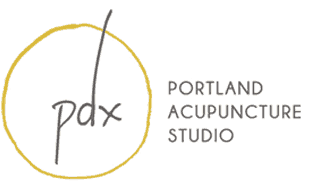by Lee Hullender Rubin, DAOM, LAc
In the last 15 years, I have had the good fortune of helping thousands of women and men build their families. I provided acupuncture and Traditional Chinese Medicine (TCM) as either a stand-alone natural fertility treatment or integrated into an assisted reproductive cycle. I typically observed good outcomes, but I had little research to show the treatments were actually improving a patient’s chances of having a child over those that didn’t have TCM. In this post, IVF Acupuncture research Part 3, I will share with you the results of my research project looking at the “Impact of Chinese Medicine on In Vitro Fertilization Outcomes.”
You may recall from part 1, that we included women who had a fresh non-donor or donor IVF cycle in this study. I also explained the three different treatment groups in part 2: Usual IVF care, Day of Embryo Transfer Acupuncture, and Whole Systems Traditional Chinese Medicine. In this post, we will talk about the new IVF Acupuncture research results. Here is what I found.
Results
We looked back at more than 1200 women who completed a fresh non-donor or donor IVF embryo transfer at an IVF clinic in Kirkland, WA from 2005 to 2010. There were 1,069 women had an embryo transfer with their own eggs and 162 transferred donor eggs. I compared the three groups on the following possible outcomes: Birth rate (delivery of at least one live infant); Miscarriage rate (pregnancy that ended before the 20th week), and Biochemical pregnancy (a positive pregnancy test, but not viable). You can see the women’s results in the table below. An asterisk appears wherever there was a statistically significant difference between groups.
|
Non-Donor Cycles |
|||
|
Usual IVF Care Group |
Day of embryo transfer acupuncture Group |
Whole Systems TCM Group |
|
| Number in group |
580 |
370 |
119 |
| Birth rate |
48.2% |
50.8% |
61.3%* |
| Miscarriage rate |
10.7% |
7.3% |
5.8% |
| Biochemical pregnancy rate |
8.4% |
9.5% |
2.5%* |
|
Donor Cycles |
|||
| Number in group |
104 |
37 |
21 |
| Birth rate |
62.5% |
59.5% |
85.7%* |
| Miscarriage rate |
11.5% |
16.2% |
4.8% |
| Biochemical pregnancy rate |
8.7% |
8.1% |
4.8% |
While these numbers certainly suggest there was a difference between groups, we performed a statistical test to find out the strength of that difference. We did this because there are many influential factors that could explain why there was a difference. (See the caveats section below).
In our analysis, we found women who added approximately 12 sessions of Whole Systems TCM to their fresh, non-donor IVF were associated with two-fold increase in live births and 72% fewer biochemical pregnancies compared to usual IVF care alone. When compared to day of ET acupuncture, Whole Systems TCM was associated with 63% more live births and 75% fewer biochemical pregnancies.
I also found in women who added approximately 11 sessions of Whole Systems TCM to their fresh donor cycle, it was associated with four-fold increase in live births compared to women who only added ET acupuncture to their IVF, and trended toward a significant difference compared to Usual IVF care alone. This cycle type and each group had fewer women than the non-donor cycle type, so I recommend exercising caution when considering this outcome. While there is clearly a signal here that Whole Systems TCM may help, a study with more women is absolutely warranted to confirm this finding.
Caveats
The women were different on several important characteristics that could have an influential effect on whether a woman may be successful with IVF. This is also called bias in research. And, this is expected in this type of study because we did not recruit and then randomize patients. Of the non-donor cycles, women in the Whole Systems TCM group were more likely to be diagnosed with Diminished Ovarian Reserve, have a low antral follicle count, fewer eggs retrieved, more embryos transferred, and previously failed cycle. We added these to our statistical model to adjust the analysis for these differences. Another potential factor that could account for the differences between groups is that it is possible women who choose to add Whole Systems TCM to their IVF differ in significant, but unknown ways from women who did not.
Clearly, more rigorous research is needed. But, these observations signal Whole Systems TCM did not harm IVF cycles, as previously suggested by other researchers. Instead, it may provide a substantial benefit to patients. It also suggests that supporting a patient through the IVF cycle with acupuncture may provide a greater benefit than just doing two treatments on the day of embryo transfer. I think this is a really important finding. While doing acupuncture on transfer does absolutely help with the stress of the day, it seems to have a more positive impact when it is combined with acupuncture and TCM treatment throughout the IVF cycle.
Want to know when to start acupuncture and TCM treatment for your next IVF cycle? Contact me.
Photo courtesy of archetypefotografie.





